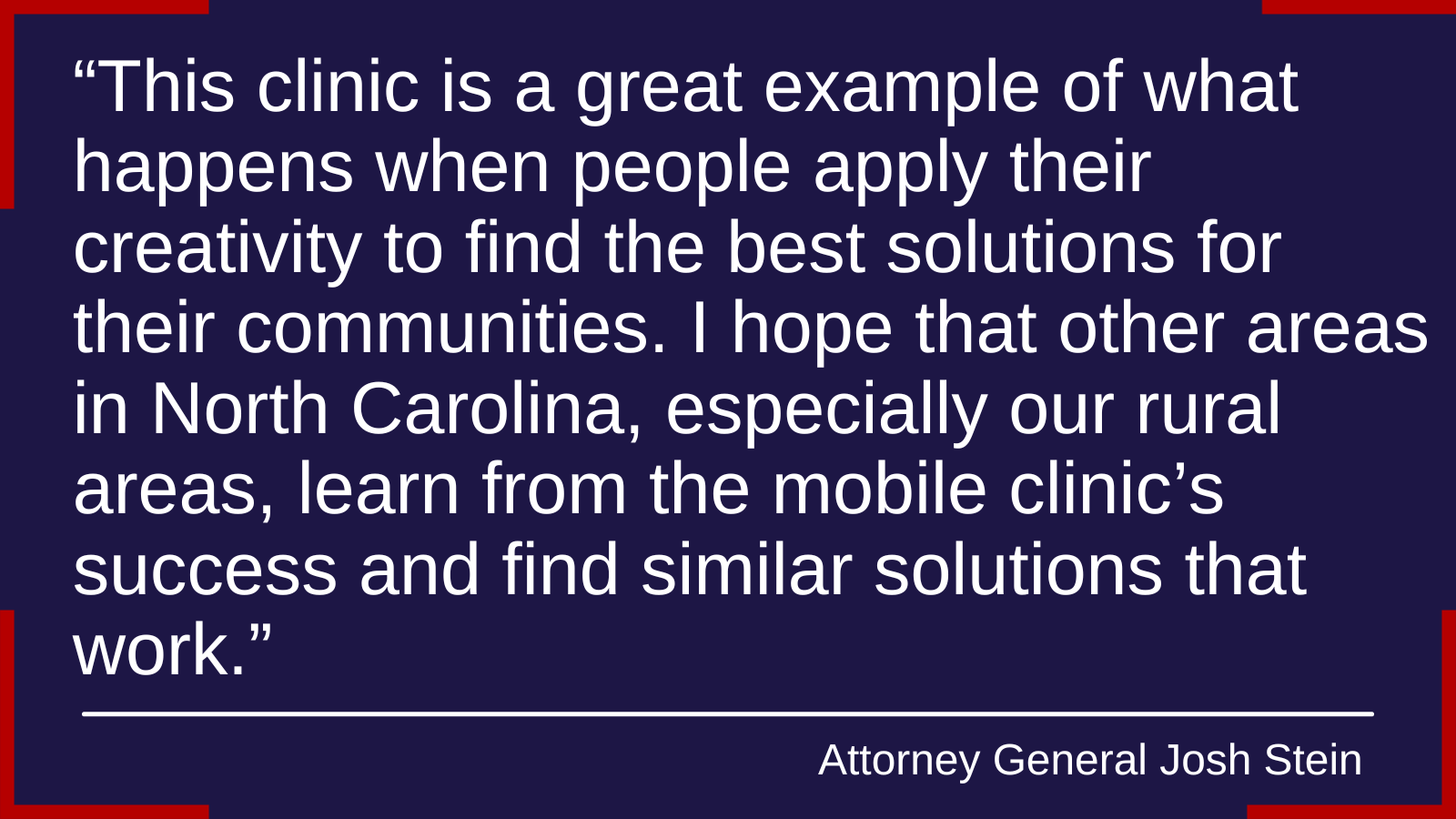
For Immediate Release:
Tuesday, September 26, 2023
Contact: Nazneen Ahmed
919-716-0060
(RALEIGH) Attorney General Josh Stein today visited the ATLAS (Addiction Treatment: Linking Access & Services) mobile clinic in Lumberton to highlight the work the clinic does to help Robeson County residents get medication-assisted treatment and support services for their substance use disorder. The clinic was started by the UNC School of Medicine with funding from Vital Strategies and the Duke Energy Foundation.
“This clinic is a great example of what happens when people apply their creativity to find the best solutions for their communities,” said Attorney General Josh Stein. “I hope that other areas in North Carolina, especially our rural areas, learn from the mobile clinic’s success and find similar solutions that work.”
The clinic visits Robeson County once a week to deliver addiction treatment, including medications for opioid use disorder. Patients are treated by physicians who are board certified in addiction medicine and work with social workers and peer support specialists to aid in their recovery.
“The mission of our program at UNC is to expand access to addiction treatment with a specific focus on those with the highest need of services,” said Dr. Robyn Jordan, director of the UNC School of Medicine’s Addiction Medicine Program. “Overdose deaths are increasing at the highest rates in Native American and Black populations, making it imperative that Robeson County receive increased services for addiction treatment. With ATLAS, we’re able to bring addiction treatment directly to the community, while also building the community’s resources through education and training.”
“We are proud to join the Department of Justice and Department of Health and Human Services in the fight against the opioid crisis,” said Kendal Bowman, Duke Energy North Carolina president. “Many of our employees call Robeson County home, so it is a privilege to support this treatment unit that will serve this community and those who need it most.”
“Expanding access to medications for opioid use disorder is crucial to saving lives,” said Kat Humphries, Technical Advisor at Vital Strategies. “The ATLAS mobile clinic highlights the importance of reaching people where they are geographically as well as with their substance use.”
While the clinic is not currently supported by funds from the nearly $1.5 billion coming to North Carolina from national opioid settlement funds that Attorney General Stein helped negotiate, it is a solution that may be useful to other local governments. In particular, the clinic provides treatment opportunities for people in rural North Carolina.
North Carolinians can view how their local governments plan to spend the funds coming to counties and municipalities to combat the opioid overdose crisis. The information is available on the Community Opioid Resources Engine for North Carolina (CORE-NC). Transparency and accountability are a hallmark of North Carolina’s approach to opioid settlement spending. CORE-NC includes resources, payment schedules, and extensive county-specific data to help guide local spending and guidance on strategies that work. In addition, CORE-NC will serve as an information clearinghouse for reports on the use and impact of opioid settlement funds for the duration of the 18-year settlement.
###
